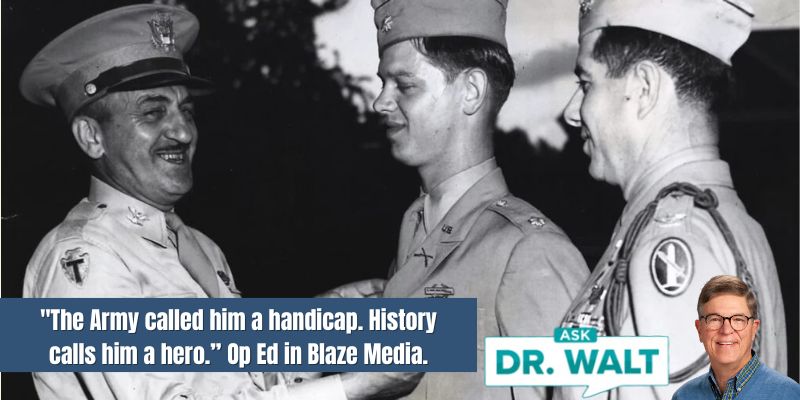
“At First Light” and “The Forgotten Front” featured on a nationwide podcast — America’s Veteran’s Stories
July 4, 2024
A nationwide podcast on the “Forgotten Front in WWII” that I think you’ll enjoy on America’s Veteran’s Stories
July 7, 2024July 6, 1944 — The men were training like dogs, while Phil was learning the value of hope in the ranks
Now Phil and his men were being told to gird themselves for their next operation. Although they did not know it at the time, they were being sent to train for Operation Dragoon, the amphibious assault on southern France.

Why were the men trained south of Rome instead of north, toward Germany?
Because Phil and his men needed intensive training for the large-scale amphibious operations that were surely in their future. The beaches and terrain in that area most closely resembled where they were to land in southern France.
The VI Corps commander, Major General Lucian Truscott, the second youngest corps commander in the U.S. Army, reinitiated an extremely strenuous training regimen he had used when commanding the 3rd Division invasion of Sicily.
The program was designed to make the men the fastest, toughest marchers in the U.S. Army.
Instead of the standard infantry marching rate of 2½ mph, Truscott trained his division to march 5 mph for the first hour, 4 mph each of the next two hours, and then 3½ mph for up to thirty miles.
Phil’s 3rd Battalion bragged of holding the all-time record for a march of fifty-four miles in thirty-three hours.ii The men grudgingly called these hikes the “Truscott Trots.”
They trained like dogs, starting at six in the morning with a five-mile, one-hour trot or speed hike, and then going hard until three in the afternoon on a nearby beach, practicing dangerous amphibious landings and other tasks that could save their lives.
Nighttime brought no rest for their weary bodies as they would run through close-order drills three times a week before returning to their headquarters and racking out.
Although the men were soon in peak physical condition, those newer to the force grew increasingly anxious. Phil noticed the chaplains were kept busy leading these men in prayer, and the attendance at services grew as the date of departure approached. Personally, he thought church services gave both he and his men optimism for the future. As a young lieutenant, he was learning the value of hope in the ranks.
In case you haven’t read or listened to Dad’s book, you can learn more or order it here.
© Copyright WLL, INC. 2024.



